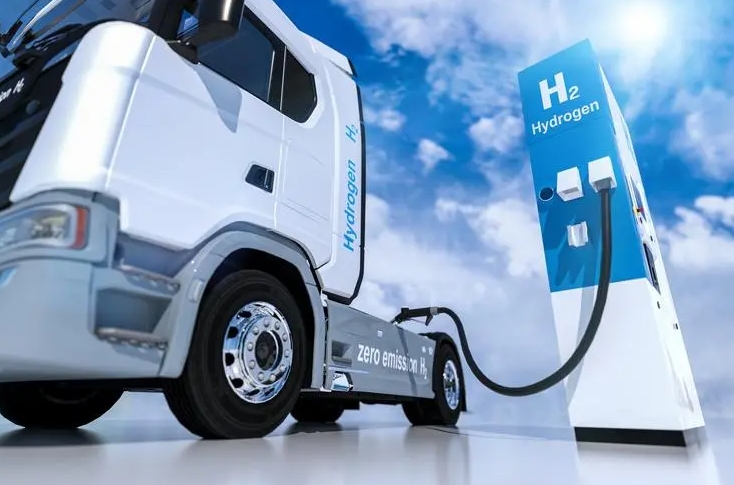Trucks powered by green hydrogen, as opposed to fossil fuels, offer a means to reduce carbon emissions in the transportation sector. Hydrogen trucks are especially well-suited for long journeys and in areas with limited charging infrastructure or battery recharge time.
Volvo plans to commence testing of vehicles equipped with hydrogen-powered combustion engines in 2026. These trucks are expected to be commercially accessible by the end of the current decade. Testing in both laboratory and vehicular settings is now in progress. Hydrogen-fueled combustion engine trucks will enhance Volvo’s range of vehicles, including battery electric trucks, fuel cell electric trucks, and trucks driven by renewable fuels like biogas and HVO (Hydrotreated Vegetable Oil).
Volvo trucks equipped with combustion engines that run on green hydrogen have the capability to generate no CO2 emissions when utilizing renewable HVO as the ignition fuel. These trucks are categorized as “zero emission vehicles” (ZEVs) according to the latest EU CO2 emission regulations.
Volvo cars powered by hydrogen-fueled combustion engines will come with High Pressure Direct Injection (HPDI), a technology that injects a tiny amount of fuel at high pressure to facilitate compression ignition prior to the addition of hydrogen. This technique offers advantages such as enhanced fuel efficiency resulting in reduced fuel consumption and higher engine power.
The Volvo Group has entered into a partnership with Westport Fuel Systems to establish a joint venture that will utilize HPDI technology. The joint venture is anticipated to commence operations in the second quarter of 2024, following the completion of official closing procedures.
